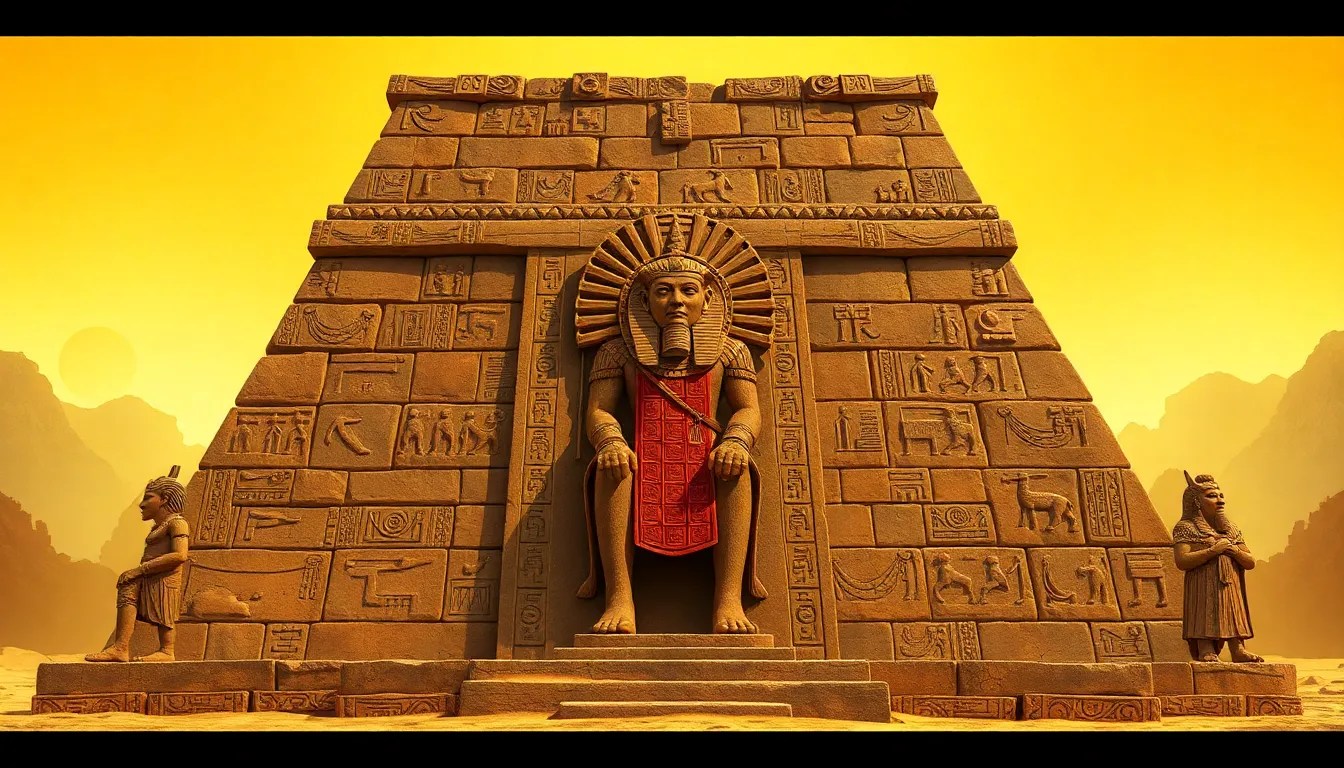Enlil’s Influence on Babylonian Culture and Society
I. Introduction
Enlil is one of the most significant deities in Babylonian mythology, revered as the god of wind, air, earth, and storms. He occupies a central position within the pantheon of Mesopotamian gods, often associated with authority, governance, and the natural elements. Enlil’s influence shaped various aspects of Babylonian culture and society, leaving a legacy that resonates through the ages. This article aims to explore the multifaceted roles of Enlil, detailing his impact on Babylonian civilization and how his worship influenced societal norms and practices.
II. Historical Context of Enlil
The worship of Enlil has deep historical roots, tracing back to Sumerian times, where he was initially recognized as a local deity of Nippur. Over time, Enlil evolved into a prominent figure in the Akkadian and Babylonian pantheons.
- Origins and Evolution: Enlil’s worship began around 3000 BCE, and he became increasingly significant as city-states developed in Mesopotamia.
- Role in Pantheon: In the Sumerian hierarchy, Enlil was considered the leader of the gods, a status that continued into Babylonian mythology where he was revered as a supreme deity.
- Key Myths: Enlil features prominently in several myths, including the creation story where he separates heaven and earth and the flood narrative where he decides to cleanse the world of humanity.
III. Enlil as the God of Wind and Storm
Enlil’s dominion over wind and storms symbolizes both the life-giving and destructive forces of nature. In Mesopotamian culture, these elements were vital to agriculture and survival, reflecting the duality of his character.
- Symbolism: Wind was seen as a breath of life, while storms represented chaos and destruction, highlighting the balance of nature.
- Representation: Enlil is depicted in literature and art as a powerful figure commanding the winds, often portrayed with a beard and a horned cap, symbolizing his authority.
- Dual Nature: Enlil’s powers could create fertile lands or unleash devastating storms, making him a complex character in mythology.
IV. Enlil’s Role in Governance and Kingship
As a divine authority, Enlil was integral to the concept of kingship in Babylonian society. He was seen as the ultimate judge and protector of the state.
- Divine Authority: Kings were believed to rule by the will of Enlil, receiving their authority through divine sanction.
- Divine Right: The belief in divine right reinforced the legitimacy of Babylonian rulers, making Enlil’s favor essential for successful governance.
- Rituals: Various rituals, including offerings and prayers, were conducted to seek Enlil’s blessing for rulers and their lands.
V. Enlil and Agricultural Society
Agriculture was the backbone of Babylonian civilization, and Enlil played a crucial role in ensuring its success through his associations with fertility and crop abundance.
- Significance of Agriculture: The fertile land between the Tigris and Euphrates rivers depended heavily on favorable weather conditions, which were believed to be controlled by Enlil.
- Association with Fertility: Enlil was called upon to bless the fields and ensure a bountiful harvest.
- Festivals: Numerous festivals were held in honor of Enlil, celebrating agricultural cycles and seeking his favor for prosperity.
VI. Enlil’s Influence on Law and Order
Enlil’s role extended beyond the natural world; he was also pivotal in shaping legal codes and societal order in Babylon.
- Legal Codes: Enlil’s principles influenced the development of laws, emphasizing justice and moral conduct.
- Mediator Role: Enlil was often viewed as a mediator between the gods and humanity, providing guidance on ethical behavior and societal norms.
- Examples of Laws: Many laws were framed with references to Enlil’s will, reinforcing the connection between divine authority and civic responsibility.
VII. Enlil in Literature and Religious Texts
Enlil’s presence is felt throughout Babylonian literature and religious texts, showcasing his importance in the cultural narrative of the time.
- Epic of Gilgamesh: Enlil plays a critical role in this epic, representing the divine forces that govern human affairs.
- Hymns and Prayers: Many hymns were dedicated to Enlil, praising his power and seeking his protection and guidance.
- Legacy in Literature: Enlil’s influence is evident in later texts, highlighting the continuity of his worship and the themes associated with him.
VIII. Conclusion
Enlil’s multifaceted influence on Babylonian culture and society is undeniable. From his roles in governance and agriculture to his representation in literature, Enlil shaped the foundational aspects of Babylonian life. The reverence for Enlil not only impacted ancient Mesopotamian beliefs but also left a lasting legacy in subsequent cultures. As modern interpretations of ancient beliefs continue to evolve, Enlil remains a compelling figure, embodying the complexities of divine influence on human society.



